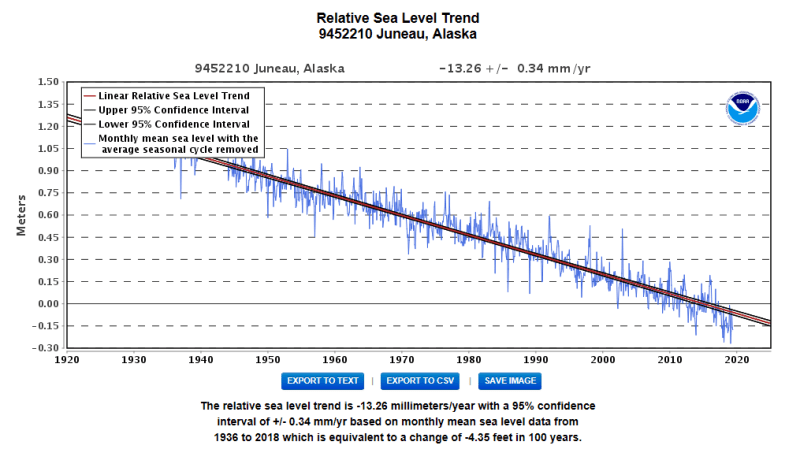As I understand it, there is geologic evidence that as glacial ice melts/thins/retreats it relieves [un-strains] the underlying terrain of the compressed mass of several hundreds/thousands of feet of ice... which results in a terrain lifting phenomena due to load-relief. Apparently this decompression/lifting phenomena has been observed in various places as ice-age glaciers retreated. It also seem evident on a smaller scale n certain civil engineering projects where terrain compression-rebound phenomena is quantifiable.
Likewise NASA studies have quantified the effects of dense/thick ice mass-concentrations distributed around the world which have a quantifiable effect on earth's rotational dynamics... such as period and 'wobble'.
IF a large mass redistribution were to 'suddenly' occur [geologic blink-of the-eye], due to rapid/dramatic ice-mass thinning/loss... along with terrain decompression... I suspect there could be some less-than predictable changes in-store for mother Earth's rotational dynamics... in the not-too-distant future.
Regards, Wil Taylor
o Trust - But Verify!
o We believe to be true what we prefer to be true. [Unknown]
o For those who believe, no proof is required; for those who cannot believe, no proof is possible. [variation,Stuart Chase]
o Unfortunately, in science what You 'believe' is irrelevant. ["Orion", Homebuiltairplanes.com forum]
Likewise NASA studies have quantified the effects of dense/thick ice mass-concentrations distributed around the world which have a quantifiable effect on earth's rotational dynamics... such as period and 'wobble'.
IF a large mass redistribution were to 'suddenly' occur [geologic blink-of the-eye], due to rapid/dramatic ice-mass thinning/loss... along with terrain decompression... I suspect there could be some less-than predictable changes in-store for mother Earth's rotational dynamics... in the not-too-distant future.
Regards, Wil Taylor
o Trust - But Verify!
o We believe to be true what we prefer to be true. [Unknown]
o For those who believe, no proof is required; for those who cannot believe, no proof is possible. [variation,Stuart Chase]
o Unfortunately, in science what You 'believe' is irrelevant. ["Orion", Homebuiltairplanes.com forum]

